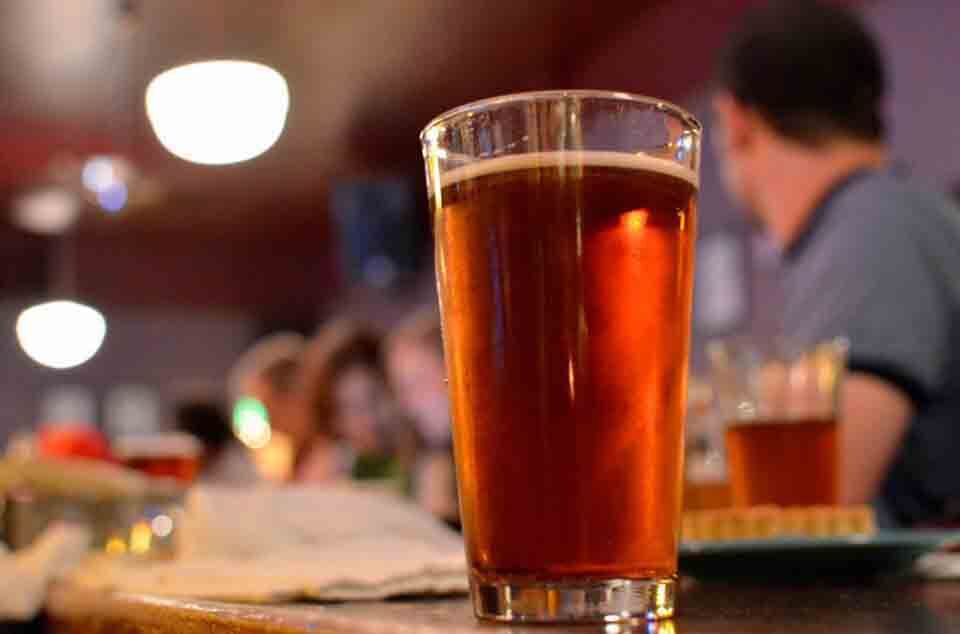Oregon Task Force Investigating Tax Increase On Wine And Beer To Fund Addiction Programs

Taxes on beer and wine have not been increased since the 1980s and the election of Rep. Tawna Sanchez, D-Portland, to chair the state’s new Alcohol Pricing and Addiction Services Task Force in its first meeting last week looks likely to implement increases. Currently, Oregon has the lowest taxes on beer and wine of any state.
Statistics released by the Oregon Health Authority show that alcohol kills more than 2,000 people, and costs the state nearly $5 billion annually. While some lawmakers have been pushing to increase alcohol taxes for years, in 2021, Sanchez- a licensed social worker who says that she is in recovery, introduced a bill that would have seen a dramatic increase in tax revenue, to use the funds to bolster Oregon’s imperfect addiction treatment system.
The proposal suggested an increase in the state’s beer and cider tax from $2.60 to over $70 a barrel. Similarly, wine taxes would have risen from 65 cents to over $10 per gallon, but the bill was defeated in committee following lobbying by industry. Sanchez attempted to pass a smaller tax increase last year, but the attempt was also defeated. During the first task force meeting, Sanchez called this bill “an opening salvo,” intended to initiate a conversation.
Effects Of Wine And Beer Taxes On The Economy
A spokesman for the Oregon Liquor and Cannabis Commission, Matthew van Sickle indicated that alcohol sales are the state’s third-largest source of revenue, despite that the beer and wine industries and distilleries have repeatedly resisted higher taxes. Gov. Tina Kotek proposed to raise the alcohol surcharge by 50 cents to fund the state’s addiction treatment last year, but she ultimately withdrew the proposal.
The Oregon Office of Economic Analysis indicated that state taxes on beer, wine, and cider raise more than $40 million, and liquor delivered about $625 million in taxes between 2021 and 2023, as the tax also applies to out-of-state manufacturers selling wine and beer in Oregon. Industry insiders emphasize its value to the state’s economy, and breweries say that any tax increase now would fall in a period of declining business, worsening existing issues. Beer Marketer’s Insights reported that beer sales fell 5% nationwide last year, and the Oregon Beverage Alliance confirmed that more breweries closed than opened in Oregon- an unusual situation.
Jamie Floyd, Part owner of Eugene-based Ninkasi Brewing, Jamie Floyd said at a meeting on Friday, “This is a pretty complicated issue.” While the feeling was that Oregon State has done a pretty good job of raising money, the money hasn’t reached where it should have. Ramsey Cox of the Oregon Beverage Alliance- an organization that opposes new taxes, is concerned that Oregon only spends about 3% of the funds raised through the taxes on addiction programs.
High Toll Of Alcohol On Public Health
Alcohol is the third preventable cause of death in the state according to the Oregon Health Authority. Linked to a third of motor car accidents, a quarter of all suicides, and around a third of deaths from falls, drinking alcohol has a high cost. Like asbestos and cigarettes, alcohol is a Group 1 carcinogen and the cells that are damaged by alcohol can ultimately grow uncontrollably- becoming tumors in the head, breast, prostate, colon, liver, and neck. Damaging the heart and liver functions, excessive alcohol consumption increases the risk of hepatitis, high blood pressure, fatty liver disease, stroke, and cirrhosis.
Alcohol costs the state $4.8 billion annually in health care costs, lost productivity, car accidents, and criminal justice costs, according to Dr. Tom Jeanne, an epidemiologist and deputy health officer at OHA, despite the valuable contributions to the state’s economy and culture of alcohol producers. They are seeking to raise awareness of the great harm and burden Oregon faces from alcohol, and launched a campaign to raise awareness of the harms of excessive alcohol consumption in December- the first campaign of this nature by a health authority in the country.
Portland-based nonprofit advocacy group Oregon Recovers indicates that around 15% of Oregonians suffer from binge drinking and 12% have an alcohol use disorder. Binge drinking is defined by the CDC as at least four drinks per occasion for women, and at least five for men. Federal figures show that 140,000 people die alcohol-related deaths in the United States annually. Between 2015 and 2019, a fifth of all deaths among adults aged 20 to 49 were attributed to alcohol.
Balancing Industry Interests with The Harm Caused By Alcohol
As the demand for beer fell during the pandemic, 20 breweries in Oregon closed their doors according to the Oregon Beverage Association. The trend has continued as people continue to drink less beer. A tax increase could be damaging to the industry.
The state’s new Alcohol Pricing and Addiction Services Task Force held its first meeting last week, and the 20-member board includes state lawmakers, public health experts, and representatives from Oregon’s beer, wine, and cider industries. Examining alcohol addiction in Oregon, its cost to the state, and funding for Oregon’s flat addiction prevention and treatment system, the task force has a big responsibility. The bill that proposes increasing tax as with any tax increase, needs a three-fifths majority of MPs to pass.

Comments are closed.